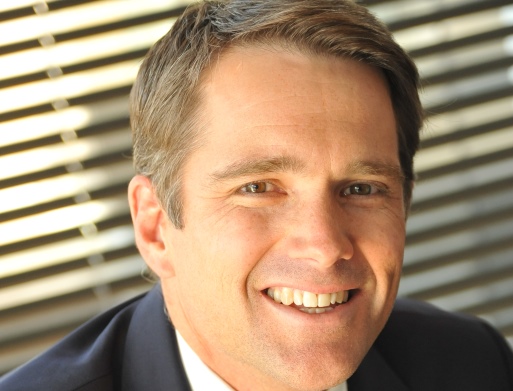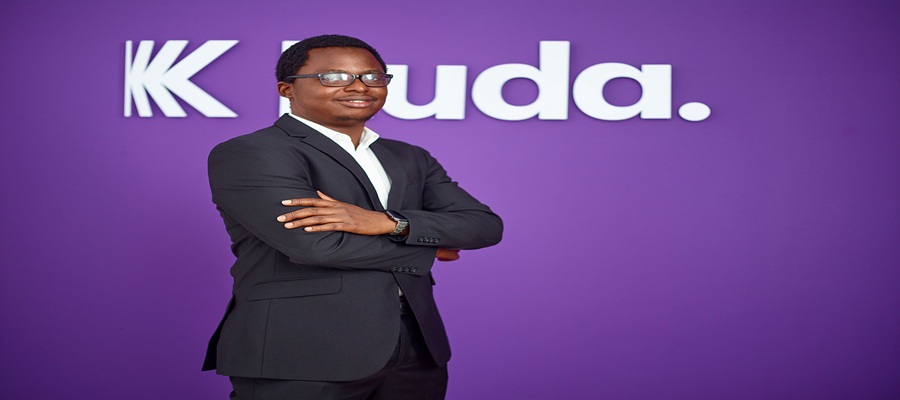E-Financial
Investing in Africa’s Value Chains as a Catalyst for the Post-pandemic Recovery

By Stephen Barnes
As Africa looks to rebuild in the aftermath of COVID-19, corridor financing and investing in productive infrastructure will be key to economic recovery and sustained growth across the continent.

The pandemic brought to light Africa’s vulnerable infrastructure network. However, this same weakness now has the potential to be a driving force in the continent’s economic recovery.
Large infrastructure programmes have the potential to unlock Africa’s long-term potential, while also offering immediate employment opportunities for those struggling as a result of the pandemic.
Africa’s core infrastructure networks – water, transport and power – are still very much in development. According to the World Bank, more than half the people living in sub-Saharan Africa, do not have access to electricity.
As a result, there is widespread consensus that the region’s economic development, both in terms of its short-term recovery from COVID-19 and its longer-term prospects, should be led by infrastructure development and maintenance.
However, creating investor confidence will be crucial to attracting the investment required to finance these projects.
While there isn’t a lack of private capital to fund projects across the continent, there is a shortage of bankable investment projects. And despite African governments taking infrastructure investment seriously as a primary driver of post-pandemic economic growth, investors remain cynical about their ability to deliver.
Ineffective project planning, regulatory uncertainty and a lack of depth in local capital in foreign exchange markets is holding projects back and preventing value chains from forming. So, what can be done to restore confidence and get Africa’s infrastructure projects moving?
I believe a large part of the answer to this is in shifting the emphasis from discrete infrastructure projects to the entire value chain associated with it, which will unlock greater multiplier effects.
An example is transport corridors – without reliable routes to market, Africa will not be able to attract the investment required for long-term, sustainable economic growth. Improving the efficiency of transport corridors greases the wheels of trade and promotes economic activity across various sectors within the economy.
A great example of what can be achieved with corridor financing is the Maputo corridor which spans both Mozambique and South Africa. Here investments in port infrastructure led to investment in the N4 highway, which in turn linked up crucial mining towns to the value chain, further driving growth.
With the African Continental Free Trade Area making it easier each year to trade across borders, each dollar spent along a transport value chain has the potential to create multiple dollars of economic benefit.
Distributed energy also has an important role to play in addressing energy supply challenges in sub-Saharan Africa, whether at utility scale or in respect of rooftop solar home systems.
Starsight Energy, a West African Commercial and Industrial energy provider, has deployed approximately 41 MW of generation assets, 33 MWh of storage, and 16,320 HP in cooling capacity across 547 sites in all Nigerian states and Ghana.
It continues to leverage on its strategic relationship with key Original Equipment Manufacturers to deploy state of the art smart technology in order to optimise energy consumption, enabling customers to significantly reduce energy costs, boost profitability and reduce their carbon footprints.
Another example is M-KOPA which focuses on the retail market. The company pioneered and kick-started the wider pay-as-you-go (PAYG) solar market and has been operating for over 10 years with a presence across East and West Africa.
It has built a highly advanced connected asset financing platform, which has provided nearly $400 million in financing that has enabled 1 million customers to access solar lighting, energy-efficient televisions and fridges, smartphones, cash loans, and more.
Benefits realised include replacement of kerosene as source of fuel, thereby avoiding nearly 2 million tonnes of CO2 from entering the climate; healthier living conditions; economic empowerment from savings realised and employment creation; access to information via smartphones and televisions; and business owners being able to operate longer hours and children studying under better lighting for longer hours.
These entities are leading the way in providing energy to Africans. This type of development is key to Africa achieving its goals.
Much has been made of the levelling effect of the pandemic, with businesses, governments and consumers alike communicating and working digitally from their own homes. With the right investment this can provide African businesses with the opportunity to compete on a global scale.
That is why digital infrastructure will continue to be a driving force in Africa’s Fourth Industrial Revolution, as it will also work to empower Africa’s unbanked population.
Africa offers a broad range of infrastructure investment opportunities as build programmes remain a core focus of African governments, particularly as they look to catalyse growth post the pandemic.
Whilst much work is still required to ensure the enabling environments across most markets deliver a greater number of bankable projects, right now there are a broad range of investment opportunities offering investors attractive risk return profiles.
At Standard Bank Group, we have significant experience in the sector and have been involved in financing and advising on a wide range of infrastructure projects across the continent.
We know there are several high potential corridors of growth that investors should consider, particularly in East Africa, including Ethiopia, which is already seeing positive growth despite Covid-19.
Investors should also continue to look at South Africa as a key market and a treat it as the gateway into Africa. Lastly, West African Markets such as Ghana and Nigeria will offer significant investment potential over the medium term.
Stephen Barnes, Global Head: Power and Infrastructure, Client Coverage at Standard Bank Group
E-Financial
UBA launches instant digital platform for seamless account opening across Africa, diaspora

United Bank for Africa (UBA) Plc, Africa’s leading financial institution, on Tuesday unveiled a groundbreaking instant account opening platform, revolutionising banking access for millions across the continent and diaspora communities worldwide.

UBA
The fully digital innovation, accessible at ubagroup.com, empowers prospective customers to complete account onboarding online in minutes, bypassing paperwork, branch visits, and lengthy processes that have long hindered financial inclusion. Supporting Naira and Diaspora accounts with multi-language options, the platform operates seamlessly on computers, tablets, and smartphones, catering to UBA’s diverse pan-African footprint spanning 20 countries, the UK, US, France, and UAE.
Shamsideen Fashola, Group Head of Retail and Digital Banking, described the launch as a pivotal step in democratising finance. “At UBA, we are committed to redefining the customer experience through innovation and simplicity,” Fashola said. “This fully digital solution underscores our belief that banking should be accessible, secure, and truly borderless.”
The seven-step process is intuitive: customers select “Open a Savings Account,” input their Bank Verification Number (BVN), undergo facial verification, confirm an OTP, update details, upload documents, add a digital signature, and receive an instant account number. This bridges traditional banking rigour with fintech speed, incorporating digital KYC while upholding stringent security.
Built with compliance at its core, the platform adheres to Nigeria’s Data Protection Act (NDPA) and Europe’s GDPR, safeguarding user privacy amid cross-border operations. Unlike conventional methods requiring physical biometrics, it enables immediate enrolment in UBA’s digital channels, blending convenience with regulatory depth.
Alero Ladipo, Group Head of Brand, Marketing, and Corporate Communications, highlighted customer-centric design. “Today’s customers expect speed, convenience, and compliance without compromise,” Ladipo stated. “We have blended industry-leading digital onboarding with robust standards for a seamless experience matching global best practices.”
The move reinforces UBA’s dominance in technology-driven inclusion, serving over 50 million customers with 30,000 employees and pioneering retail, commercial, and institutional services. Analysts view it as a strategic edge over fintech rivals, accelerating Africa’s digital economy amid rising diaspora remittances and intra-continental trade.
As Nigeria and Africa push financial digitisation, UBA’s platform positions the bank to capture untapped markets, fostering economic growth through barrier-free banking
E-Financial
Kuda MFB Secures National Microfinance Banking Licence, Sets Stage for Nationwide Growth

Kuda Microfinance Bank (Kuda MFB) has received a license from the Central Bank of Nigeria (CBN) to operate as a National Microfinance Bank, which means that it can now have a physical presence across Nigeria.

Musty Mustapha, MD/CEO of Kuda MFB
With the Unit Microfinance Bank licence it held until December 2025, Kuda MFB’s physical operations were limited to a specific location. The national licence removes those geographic restrictions, allowing the bank to open customer experience centres in multiple parts of the country. It also regularises Kuda MFB’s licensing status in line with the Central Bank’s framework for microfinance banks.
According to the bank, the national licence is about regulatory alignment and operational flexibility rather than a shift away from its digital-first model, so it will continue to lead with digital banking services, offering Nigerians the convenience of making transfers and payments, saving, and accessing instant credit through the Kuda app.
Musty Mustapha, MD/CEO of Kuda MFB, said, “Securing a national microfinance banking licence is an important step for us as a regulated institution. It strengthens our relationship with the Central Bank and affirms our commitment to operating at the highest standards of compliance as we scale. While we remain digital at our core, this licence gives us the flexibility to create more physical touchpoints where customers want in-person support or engagement, allowing us to serve Nigerians across the country in whichever ways are most convenient for them.”
Subject to regulatory approval, Kuda MFB plans to open more experience centres designed for customer support and community engagement, in the style of its existing experience centre in Yaba, Lagos, where customers and the general public can speak directly with the Kuda team to get help and learn about the microfinance bank’s products and services.
Kuda MFB’s national licence does not change its existing product offerings or transaction capabilities, but it provides the regulatory backing for a nationwide presence.
E-Financial
NDIC Seeks EFCC’s Support to Trace, Recover Assets of Failed Banks

Nigeria Deposit Insurance Corporation (NDIC) and the Economic and Financial Crimes Commission (EFCC) have agreed to strengthen collaboration to enhance the investigation and prosecution of offences that lead to bank failures, while also improving the recovery of assets and debts of failed banks.

Thompson Oludare Sunday, managing director and chief executive of the NDIC, made this known during a courtesy visit by the Corporation’s management team to Olanipekun Olukoyede, executive chairman of the EFCC, at the Commission’s headquarters in Abuja.
In a statement issued on Sunday by the NDIC’s Hawwau Gambo, head of Communication and Public Affairs, Sunday said robust partnership with the EFCC is critical to the effective liquidation of failed banks, a process that involves asset realisation and debt recovery, with proceeds used to settle uninsured deposits.
He noted that cases of asset stripping and concealment require coordinated efforts, particularly in asset tracing, recovery and enforcement, adding that the EFCC’s expertise is vital in achieving these objectives.
Sunday also identified banking fraud investigations and the prosecution of individuals whose actions contribute to bank collapses as key areas where both institutions can further strengthen their cooperation.
He stressed that NDIC plays a vital role in maintaining financial system stability through the execution of its four statutory mandates in deposit guarantee, bank supervision, distress resolution and bank liquidation.
According to him, the Corporation’s overarching goal is to safeguard depositors’ funds, ensure prompt compensation when banks fail, and sustain public confidence in the financial system.
He also observed that both institutions share common values of integrity, professionalism and accountability, describing the visit as a step towards reinforcing institutional partnership, especially in areas where EFCC’s investigative and prosecutorial capacity is essential to NDIC’s mandate.
“We aim to further strengthen our collaboration, deepen institutional synergy and explore additional avenues for mutual support in the pursuit of national financial system stability.
“The EFCC has been our partner and we want this to continue. We look forward to an expanded and more impactful partnership between our two esteemed institutions.
“Your experience has and will continue to greatly enhance our recovery efforts. Additionally, we have that strategic responsibility for prosecuting individuals whose actions contribute to the failure of banks. We therefore seek closer collaboration with the Commission in this critical area”
Responding, the EFCC boss, Olukoyede, reiterated the Commission’s commitment to its longstanding working relationship with the NDIC in tackling financial crimes within the banking sector.
He acknowledged the history of cooperation between the two agencies, particularly in investigations and capacity development related to banking operations.
Olukoyede also briefed the delegation on key departments within the EFCC, including the Bank Fraud Section, which handles matters related to the NDIC.
He encouraged the Corporation to submit any outstanding cases for prompt assessment, noting that this would enhance tracking, accountability and case resolution.
The EFCC Chairman further highlighted the role of the Commission’s Fraud Risk Assessment and Control Department, which focuses on proactive monitoring, compliance, sound risk management and internal controls in both public and private sector institutions.
He described these efforts as part of the EFCC’s broader mandate to protect and strengthen the Nigerian economy.
Olukoyede assured the NDIC of the EFCC’s continued support in deepening institutional synergy to combat financial crimes, improve asset recovery, and ensure that offenders who undermine the banking sector are brought to justice.

 E-Financial2 days ago
E-Financial2 days agoCBN Upgrades Licences of Opay, Moniepoint, Kuda, Palmpay, Paga to National Status
- E-Financial2 days ago
Nigeria’s 9 Top FinTech Firms Valued at $10.6Bn in January 2026

 News2 days ago
News2 days agoTech Executives Double Down on AI, Talent and Adaptive Strategies to Lead in the Intelligence Age

 E-Financial2 days ago
E-Financial2 days agoNIBBS to Boost Financial Inclusion with Offline Payment Solutions

 News2 days ago
News2 days agoDHQ Indicts Brigadier General Abubakar Sadiq, 15 Others in Alleged Coup Plot againt Tinubu

 E-Business2 days ago
E-Business2 days agoFirm Identifies AI as Common Denominator in Entertainment Industry’s 2026 Security Threats

 General News2 days ago
General News2 days agoWEBINAR: Techeconomy Business Series Hosts Experts from MTN, Interswitch, BusinessPlus, others this Wednesday

 News2 days ago
News2 days agoCourt Fines Airtel N210m for Unauthorised Use of ‘Nigeria Go Survive’ Song



























